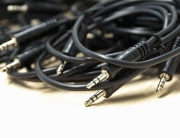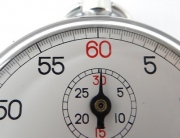For online businesses, their efforts at search engine optimization (SEO) are paramount to customers finding their websites when searching for the products or services that they offer. One of the most important factors in SEO is the download speed of the website itself to the devices where it is being used by potential customers. This means that the proper website optimization must be in place which maximizes the speed of the download.
Websites that take time in downloading are punished in their search engine rankings which not only hurt the SEO but also will reduce the number of people who will visit the website. Here are five simple ways to improve your website speed so that you can maximize your search engine rankings.
Fast Server
Everything begins with the server that hosts your website. You’ll want it to be as fast as possible because no matter what upgrades you make to your site, it will be limited by the speed of the server itself. For larger sites, you may want a dedicated server which means that all of its computing power is freed up to help get your site loaded quickly. While faster servers are more expensive, they are often well worth it in keeping up your download speeds.
Limit the Size of Images
One of the most common mistakes people make is placing pictures or images on their site so large that they actually slow the download speed of the website. Plus, people often mistake the size that the picture appears as the amount of information that it carries which is also misleading. Turn every picture on your website into a .jpeg which provides for high quality while taking up very little disk space.
Enable the Compression
Pages that are large and bulky take time to download when they are not compressed. By zipping them instead, the compression will keep the quality of the content where it needs to be while greatly increasing the download speeds.
Enable the Browser Caching
When you visit a site, the main elements that you see are stored on the hard drive in what is known as the cache. This way, when you return to the page, the browser will simply load it and not have to send an HTTP request. This means that the website will download faster as a result. You will want to open your website so that browsers can store the information in their cache, but set a time limit of one week for resources that never change.
Responsive Website Design
A responsive design means that your site will be adjusted automatically to the size of the screen which it is being displayed. This website optimization can be crucial when it comes to downloading on smartphones, tablets, and other computing devices. Plus, you will enjoy better Google rankings as well since they respond more to websites that offer a responsive design.
By using these five tips, you can improve your website optimization and the overall speed that your site will download onto computers.










